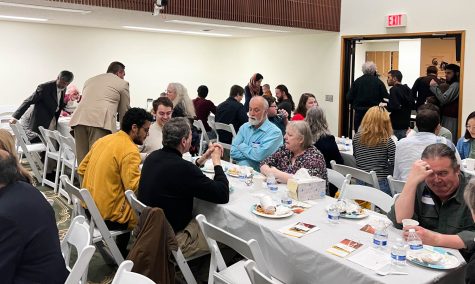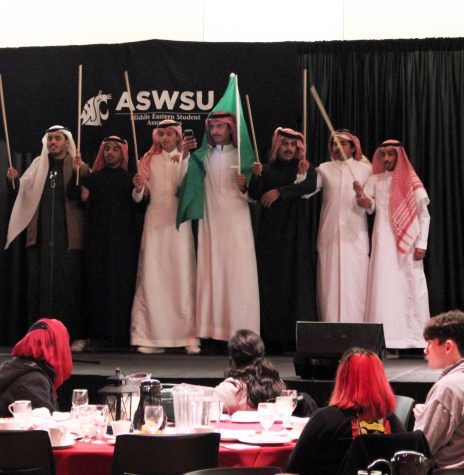To market, to market, to buy local produce
May 20, 2015
Where can someone find freshly grown produce, flowers, and goat milk products in the same place?
The Pullman Farmer’s Market returns for its sixth year to bring locally grown food and handmade goods to the community. Though the market may seem small at first, PR and marketing intern Katie Lundi said the market will get into full swing at the beginning of July.
“It’s smaller than the Moscow Farmer’s Market but I kind of like that about it,” Lundi said. “It’s not quite as crowded.”
Farmer’s markets have evolved to include more than just food. Many markets, such as the Moscow one, will include crafters. However the Pullman market is mainly about food, Lundi said.
“It’s for people looking for fresh local produce and stuff from the farms,” said Tim Johnston, the marketing manager for the farmer’s market.
Vendors sell a variety of locally grown foods such as tomatoes, radishes, corn, and strawberries. Fresh eggs are also sold, along with plants and seedlings that can be grown at home. Some vendors serve meals, including Bangladeshi food.
Though the market is mostly for food, there are vendors selling things like flowers and lotion made from goat milk, Lundi said.
“They’re a group of people who are really committed to the community and they’ve dedicated their lives to the greater population,” Lundi said.
Music plays at the market, starting with songs played over a PA system but transitioning later in the summer to live music played by local bands from the Pullman/Moscow area.
Johnston said he hopes to be able to bring in larger bands in the future, bringing in folksy-like, local musicians that are fun and family appropriate at the same time.
Live entertainment is planned for throughout the market’s time, including plans to bring in WSU organizations like Culinary Cougs, Lundi said.
Farmer’s markets are important for the Pullman economy. For farmers in the area, this is their livelihood, and by buying local the community is making a contribution to the economy.
“You’re supporting your neighbors,” Lundi said.
All the food sold at the farmer’s market is grown within 50 miles of Pullman, cutting the distance the food goes from the garden to the farmer to the market.
Despite some pushes towards organic foods, some people may not realize how much better local and organic food can be, Johnston said. A common misconception is that produce at the farmer’s market is expensive, but this is not true.
“Financially, the more money that stays local, the more that it’s in our town,” he said.
Lundi said the people of the market are working with Alive orientation to get more students to come down to the market. Many of the students simply don’t know it’s there, so there are plans to have an information session each week to make students aware of the opportunity.
“We want to show (parents) their kids are going to school in a good little town that has stuff to offer,” Johnston said.
One of the unique things about the Pullman Farmer’s Market is the opportunity to use food stamps. There is a station set up for people to use their food stamp money to buy tokens and use those tokens to buy from the vendors, Lundi said.
“It’s been pretty successful,” she said. “We like to encourage the fact that if you don’t have a lot of money you can still eat healthy.”
Johnston said he is also figuring out an opportunity for backyard gardeners to sell any extra food they’ve grown at the market by sharing a rented stall with other gardeners. For more information about this, email [email protected].
The Pullman Farmer’s Market is open Wednesdays from 3:30 – 6 p.m. The market is located on Kamiaken Street, just up the road from Porchlight Pizza.
Reporting by Catherine Kruse
















